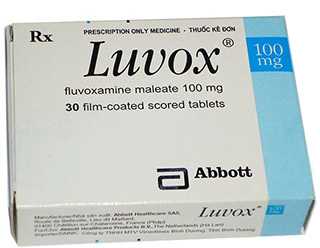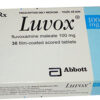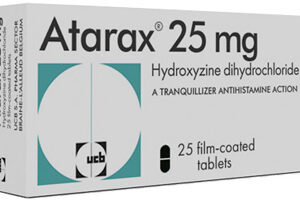Luvox, also known by its generic name fluvoxamine, is a selective serotonin reuptake inhibitor (SSRI) used primarily in the treatment of obsessive-compulsive disorder (OCD). It belongs to a class of medications that work by increasing the amount of serotonin, a natural substance in the brain that helps maintain mental balance. Luvox is available in tablet and extended-release capsule forms, and it requires a prescription from a healthcare professional.
When Not to Take Luvox
Before starting Luvox, it is important to discuss with your healthcare provider any medical conditions you have or medications you are taking to ensure its safe use. There are several contraindications to taking Luvox:
- Hypersensitivity to fluvoxamine or any components of the medication
- Use of monoamine oxidase inhibitors (MAOIs) within the past 14 days
- Liver disease or severe hepatic impairment
- Currently taking thioridazine or pimozide, as co-administration with Luvox can result in potentially fatal cardiac arrhythmias
If you have any of these contraindications, alternative treatment options should be considered.
Adverse Reactions
As with any medication, Luvox can cause side effects. The most common side effects reported by patients include:
- Nausea
- Upset stomach
- Drowsiness
- Dizziness
- Insomnia
- Headache
- Increased sweating
- Nervousness
While these side effects are generally mild and temporary, it is important to notify your healthcare provider if they persist or worsen. Additionally, Luvox may cause certain serious side effects in rare cases. These include:
- Withdrawal symptoms if the medication is suddenly stopped
- Serotonin syndrome, characterized by confusion, rapid heart rate, fever, and muscle stiffness
- Increased risk of bleeding, especially if taking blood thinners or nonsteroidal anti-inflammatory drugs (NSAIDs)
- Abnormal bleeding or bruising
- Severe allergic reactions
If you experience any of these serious side effects, seek immediate medical attention.
Taking Luvox Safely
When taking Luvox, it is important to follow the prescribed dosage and administration instructions provided by your healthcare provider. If you miss a dose, take it as soon as you remember unless it is close to the time for your next dose. In that case, skip the missed dose and resume your regular dosing schedule. Do not double the dose to make up for the missed one.
If you suspect you have taken too much Luvox or have overdosed, seek emergency medical attention. Symptoms of overdose may include:
- Vomiting
- Irregular heart rhythm
- Tremors
- Seizures
- Fainting
It is crucial to always store Luvox at room temperature, away from moisture and heat, and keep it out of reach of children.
Luvox and Other Medications
Luvox may interact with other medications, potentially affecting their effectiveness or increasing the risk of side effects. Before starting Luvox, inform your healthcare provider about all the medications you are taking, including prescription, over-the-counter, and herbal products.
Some common medications that may interact with Luvox include:
| Medication | Interactions |
|---|---|
| Monoamine oxidase inhibitors (MAOIs) | Can result in a potentially life-threatening serotonin syndrome |
| Thioridazine or pimozide | Co-administration with Luvox can cause serious cardiac arrhythmias |
| Blood thinners or NSAIDs | May increase the risk of bleeding |
| Other SSRIs or SNRIs | Can increase the risk of serotonin syndrome |
There may be other medications not listed here that can interact with Luvox, so it is important to disclose all your current medications to your healthcare provider.
Your Questions Answered
-
Q: Can Luvox be used for conditions other than OCD?
A: While Luvox is primarily approved for the treatment of OCD, it may also be used off-label for other conditions such as social anxiety disorder and major depressive disorder. However, its safety and efficacy for these indications may vary.
-
Q: How long does it take for Luvox to start working?
A: It can take several weeks for Luvox to reach its full therapeutic effect. Improvement in symptoms may be noticed within the first few weeks, but the full benefits may not be experienced until after 4 to 6 weeks of treatment.
-
Q: Can Luvox cause weight gain?
A: Weight gain has been reported as a possible side effect of Luvox. However, it is not a common side effect and individual experiences may vary.
-
Q: Can I drink alcohol while taking Luvox?
A: It is generally advised to avoid alcohol while taking Luvox. Alcohol can increase the sedative effects of the medication and may worsen certain side effects.
-
Q: Is it safe to take Luvox during pregnancy?
A: Luvox should only be used during pregnancy if the potential benefits outweigh the potential risks. It is important to discuss the risks and benefits with your healthcare provider before taking Luvox while pregnant.





Reviews
There are no reviews yet.